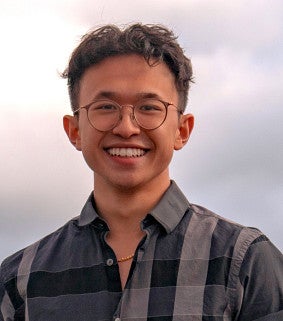
Ethan Dinh, a third-year undergraduate student in the CS department at the University of Oregon, has been awarded the prestigious Barry Goldwater Scholarship. Out of the 413 students selected nationally, Ethan is among the few who have received this honor.
Ethan's current academic goal is to obtain an M.D./Ph.D. in medical artificial intelligence and machine learning. This will enable him to improve the way clinicians diagnose and treat patients. Furthermore, Ethan aspires to become a tenured university professor, teaching and mentoring students in the underexplored field of machine learning applied to biological datasets. By focusing on research, he combines his passion for understanding biological systems with his skills in data analysis and his drive to enhance efficiency from the laboratory bench to the patient's bedside.
The Barry Goldwater Scholarship is a highly competitive program that offers financial support to undergraduate students in the United States pursuing careers in science, mathematics, engineering, and computer science. To win the scholarship, students undergo a rigorous selection process that evaluates academic achievement, research experience, and potential for future success in their field. Typically, applicants are in the top 25% of their class academically. Along with academic excellence, they must demonstrate significant research experience in their field through coursework or independent research projects, as well as evidence of leadership and commitment to their field through extracurricular activities, volunteer work, and other accomplishments.
Ethan's Research Details:
As a Knight Campus Undergraduate Scholar, Ethan works in the Guldberg Musculoskeletal Lab under the supervision of Genevieve Romanowicz, Ph.D./D.D.S. He is a co-author on the paper titled "Fabrication of injectable bone-like microdots using robot-assisted bioprinting" soon to be published in the National Professional Society Journal. The research focuses on developing injectable bone-like microdots as an alternative to autologous bone grafts. These microdots mimic the native bone environment, promoting bone regeneration without the costly and invasive nature of traditional surgeries. Using robotic bioprinting, Ethan aims to create these bone-like constructs through a rapid and reproducible fabrication process. He is also working on applying machine learning algorithms to biological datasets in order to develop a predictive model ensemble that can extrapolate healing outcomes.
